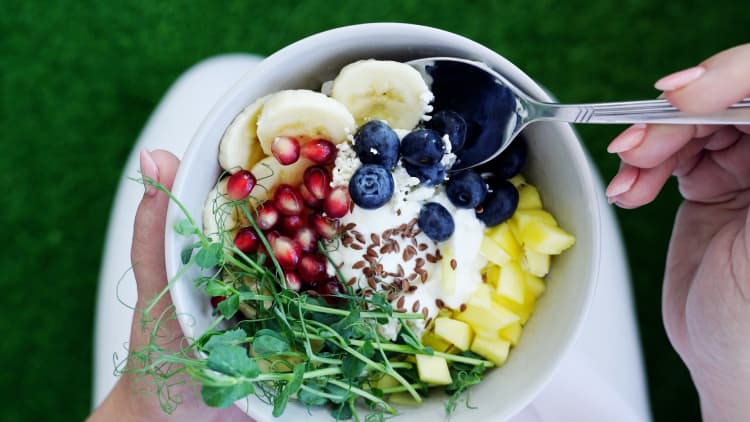Short-term stress isn't always a bad thing. It prepares our mind and body for what we need to do in the moment. Chronic stress, however, is more extreme and consistent — and has toxic effects on your body.
As a longevity researcher, I've seen how toxic stress can wear out our cells prematurely and increase the risk of obesity, heart disease, dementia and depression.
To prevent my body from aging fast and reaching a chronic state, I use a technique called "stress fitness."
Stress fitness: A dose of healthy stress
Stress fitness is a way of exercising the body with short bursts of stress. Studies show it can improve the health and regenerative life span of your cells, instead of slowly wearing them out.
Compare drinking coffee all day with enjoying a single shot of espresso. The former is not so great for you and probably leaves you feeling anxious and jittery; the latter comes with mood- and health-boosting benefits.
Stress is the same way. You don't want to be stressed the entire day, but you do want to take short, intense "shots" of it that will initiate your body's recovery process and train it to be more resilient to future stress.
How to practice stress fitness
I like to do my stress fitness exercises in the mornings a few times a week, or at least once a week. Here are two to pick from:
1. High-intensity interval training (HIIT)
Complete one round of high-intensity interval training, which takes roughly seven minutes. You can pick as many from the following list as you like, but keep it simple to start:
- Push ups
- Plank
- Side plank
- Jumping jacks
- High knees
- Rope jumping
- Mountain climbers
- Jump lunges
- Jump squats
- Burpees
Do each exercise for 30 seconds, followed by 10 seconds of rest. Repeat until the seven minutes are up.
Find your edge of intensity with speed where you feel some discomfort or struggle. Welcome the discomfort and difficulty as part of the experience — don't fight against them.
If you haven't been active in a while, start with something accessible like slow to brisk walking.
2. Turn the dial to cold
Studies have found that taking a quick, cold shower can decrease inflammation, increase longevity and improve your metabolism.
At the end of a warm shower, turn the dial to cold. Can you stay under the stream for 15 to 30 seconds? A minute? Push yourself to your edge in the same way you would with exercise, then relax into it. This is key.
To build resilience, match the shock of the stress response with a relaxed mind as much as possible.
Bonus practice: Heat it up!
Cold exposure turns on positive stress, and so does heat exposure, in the right circumstances.
While more research is needed, some studies have found links between sauna bathing and lower risks of cardiovascular issues and inflammation.
Your heart rate increases during sauna use, as if you were doing moderate exercise. If you have access to a sauna at home or in your gym, try sitting in it for 30 minutes.
But be sure to check with your doctor first if you have serious health conditions.
Elissa Epel, PhD, is a health psychologist and longevity researcher. She is a professor at University of California, San Francisco and the Director of UCSF's Aging, Metabolism and Emotion Center. In her latest book, "The Stress Prescription," she distills decades of research into science-based techniques that can help your stress into your strength. Follow her on Twitter @Dr_Epel.
Don't miss:
- A fitness trainer shares the 5 exercises she does every day to ‘look and feel younger’
- Brain expert: The No. 1 thing that sets ‘SuperAgers’ apart from people with ‘weak memory skills’
- People in Japan, Hawaii and Norway are among the healthiest in the world—here are their secrets to a long and happy life
Want to be smarter and more successful with your money, work & life? Sign up for our new newsletter here!

This is an adapted excerpt from "The Stress Prescription: Seven Days to More Joy and Ease," by Elissa Epel, published by Penguin Life, an imprint of Penguin Publishing Group, a division of Penguin Random House, LLC. Copyright © 2022 by Elissa Epel.


